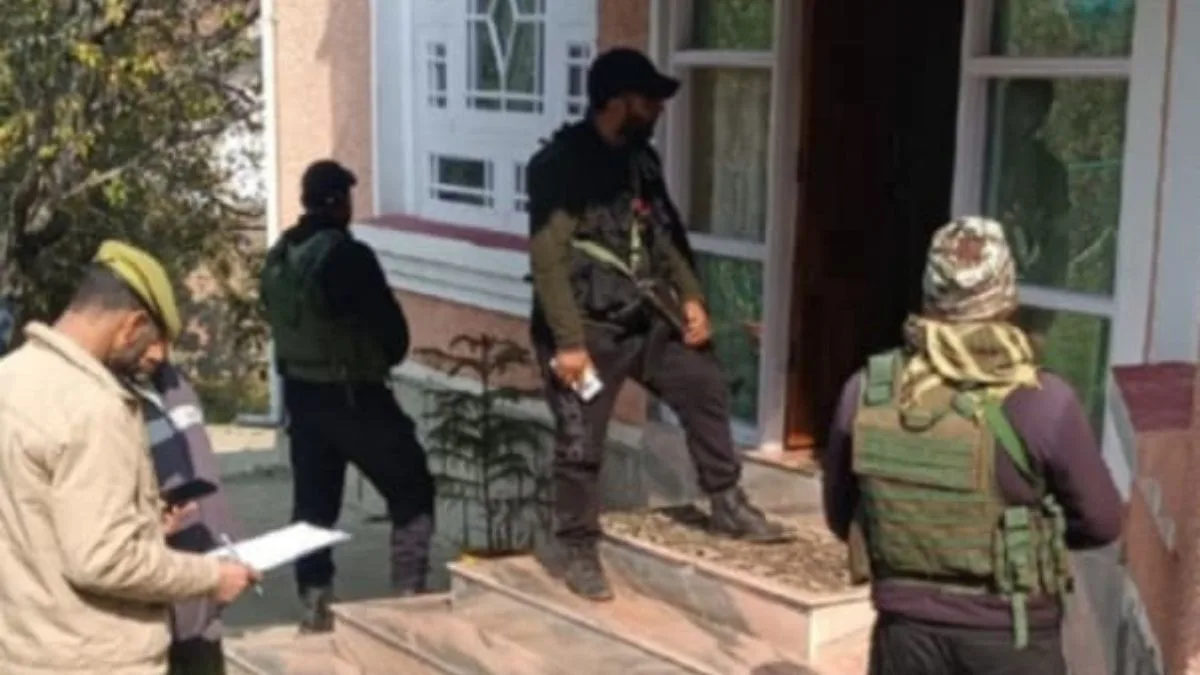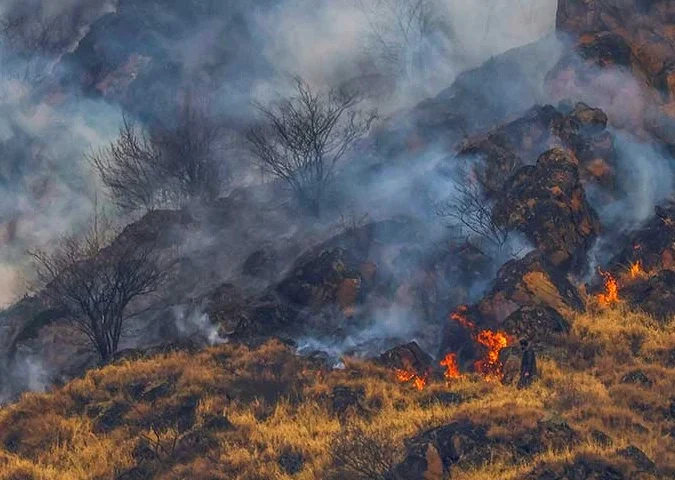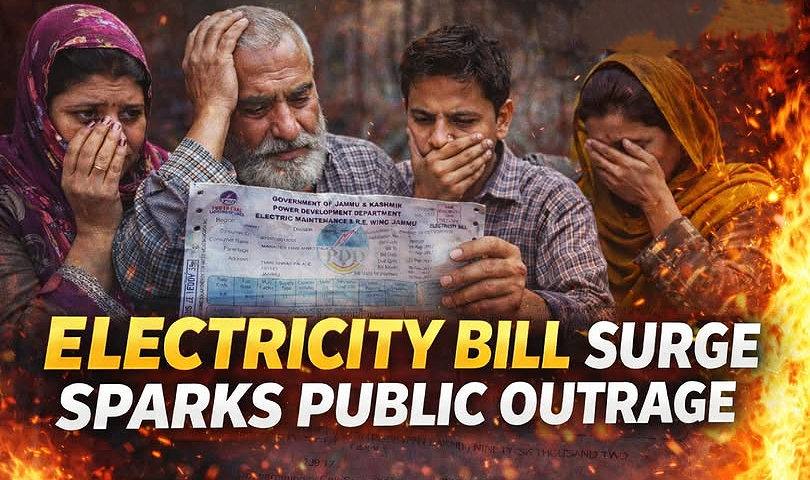Police, CRPF Conduct Statewide Raids on Banned Jamaat-e-Islami in Kashmir
By: Javid Amin | 27 November 2025
A Sweeping Security Operation Signals a New Phase of Crackdown
In one of the largest coordinated operations conducted this year, the Jammu & Kashmir Police and the Central Reserve Police Force (CRPF) carried out dozens of simultaneous raids on properties linked to the banned Jamaat-e-Islami (JeI) across the Kashmir Valley.
The searches spanned at least six districts—Pulwama, Anantnag, Budgam, Kulgam, Kupwara, and Srinagar—and included residences, madrassas, bookshops, mosques, and educational institutions.
The broad sweep of this crackdown marks the latest attempt by security agencies to dismantle what they call the “terror support ecosystem,” amid concerns that JeI networks are attempting covert revival since their 2019 ban.
The Crackdown: What Happened and Where
1. Valley-Wide Raids
Security forces launched near-synchronized raids early in the morning, targeting:
-
Homes of former JeI members
-
Madrassas and affiliated seminaries
-
Properties of JeI-linked trusts
-
Offices and bookshops handling religious texts
-
Institutions receiving donations under scrutiny
Districts raided:
-
Pulwama
-
Anantnag
-
Budgam
-
Kulgam
-
Kupwara
-
Srinagar
The operation involved special anti-terror teams, CRPF Quick Action Teams, and personnel from multiple police wings including CID and SIA (State Investigation Agency).
Key Locations Targeted
A. Educational Institutions & Madrassas
Security forces searched:
-
Jamia Islamia Institute, Handwara (Kupwara)
-
Multiple madrassas in Pulwama and Budgam
-
Mosques suspected to receive JeI-linked donations
These institutions are being examined for:
-
Possible financial channels
-
Recruitment influence
-
Dissemination of “radical material”
-
Administrators linked to JeI networks
B. Trusts & Bookshops
Raids were conducted on:
-
Chinar Publication Trust, Maisuma (Srinagar)
-
Al-Kousar Book Shop, Maisuma
-
Other publishing houses printing religious material
Inspectors seized:
-
Documents and account books
-
Donation receipts
-
Electronic devices
-
Educational materials under scrutiny
C. Residences of Key Individuals
Among those whose properties were searched:
-
Umar Sultan Guru
-
Mohd Abdullah Wani
-
Several former JeI office-bearers and sympathizers
These individuals are believed to be:
-
Maintaining residual ideological networks
-
Facilitating communication or funding channels
-
Potential links to “white-collar terror modules”
Why These Raids Were Conducted: The Official Narrative
Authorities claim the crackdown is part of a preventive, intelligence-led strategy triggered by:
1. Fear of JeI’s Clandestine Revival
Security agencies allege that despite the ban imposed in February 2019, JeI networks:
-
Continue underground organizational meetings
-
Maintain influence over religious and social institutions
-
Are attempting “low-profile restructuring”
-
Receive funds from hidden channels
2. Links to “White-Collar Terror Modules”
Recent arrests in Kashmir have included:
-
IT professionals
-
Teachers
-
Engineers
-
Religious scholars
Police argue that extremist networks have evolved into “white-collar modules”—educated individuals using professional roles to:
-
Move funds discreetly
-
Conduct ideological outreach
-
Offer logistical support to militant sources
3. Increasing Digital and Foreign Funding Monitoring
Authorities suspect:
-
Digital wallets
-
NGO-linked funds
-
Hawala routes
-
Overseas donations
may be facilitating JeI’s attempt to regain relevance.
The Historical Context: Why Jamaat-e-Islami Remains Under Close Watch
The 2019 Ban
JeI was banned under the UAPA for allegedly:
-
Funding separatism
-
Being ideologically aligned with militant narratives
-
Offering logistical cover to extremist groups
-
Running influence networks in educational institutions
Publicly, JeI has always denied militant links, insisting it is a socio-religious organization.
JeI Leaders Allowed to Contest in 2024
In a controversial turn, some JeI members were quietly cleared to contest the 2024 elections, prompting speculation that the government wanted to politically mainstream part of the Jamaat.
Opposition leaders now ask:
-
If JeI is dangerous, why allow political participation?
-
If it is safe, why conduct large-scale raids again?
Thus, the ban and selective clearance have created political ambiguities.
Political Sensitivity: A Volatile Issue in a Polarized Landscape
Opposition Parties Warn of “Selective Targeting”
Several regional parties—including the National Conference, PDP, and Apni Party—have expressed concerns.
They argue:
-
Raids on religious institutions must be backed by transparent evidence
-
Broad sweeps risk alienating communities
-
Targeting Islamic institutions creates a perception of profiling
-
JeI’s social role in rural Kashmir complicates blanket criminalization
They also warn of:
-
Potential erosion of civil liberties
-
Shrinking political space
-
Fear among the Valley’s clerics and educators
Government Line: National Security Comes First
The administration maintains:
-
No religious institution is being targeted “per se”
-
Only individuals and assets linked to a banned organization are under watch
-
Public safety overrides political sensitivities
The Lieutenant Governor’s office and J&K Police insist the raids are “evidence-driven.”
Human Rights & Civil Liberties Concerns
Rights groups and civil society actors raise questions about:
1. Due Process
Are homes being searched with proper warrants?
Are seizures documented transparently?
2. Impact on Education
Raids on madrassas and institutes can:
-
Create fear among students
-
Disrupt academic activities
-
Trigger social stigma
3. Broad-Based Crackdowns vs Targeted Policing
Critics argue that:
-
Giant sweeps often catch innocents in the net
-
Banners of “terror ecosystem” may be used too broadly
-
Community trust erodes when policing lacks transparency
Security Perspective: Why Forces Believe This Crackdown Is Necessary
Senior police officials argue:
1. JeI Social Networks Are Deep-Rooted
Even after the ban:
-
Teachers
-
Imams
-
Social workers
-
Local influencers
allegedly continue to propagate Jamaat philosophies in subtle forms.
2. JeI’s Role in Kashmir’s Past Militancy
Historically, JeI has been linked (ideologically) to:
-
Radical Islamist movements
-
Early separatist mobilization
-
Former insurgent factions (though it denies involvement)
Security agencies believe ignoring these networks risks a slow re-radicalization cycle.
3. Preventing a 1990s-Style Regrouping
With geopolitical shifts in Afghanistan and Pakistan, intelligence agencies fear attempts to:
-
Recreate insurgent infrastructure
-
Reopen local recruitment channels
-
Leverage Kashmir’s youth unemployment
The raids, they say, are “preemptive, not reactive.”
Public Sentiment: Mixed Reactions Across the Valley
1. Fear and Uncertainty
Residents expressed concern over:
-
Early morning raids
-
Presence of armed forces near mosques and schools
-
Seizure of religious books and digital devices
2. Some See It As Necessary
A section of the population—especially in urban areas—views:
-
JeI’s past political & social dominance as problematic
-
Crackdowns as necessary to prevent extremist resurgence
3. Many Fear Overreach
Common concerns include:
-
Sweeping crackdowns turning into communal tension
-
Negative labeling of religious institutions
-
Constant surveillance chilling everyday life
What Happens Next: Legal and Administrative Fallout
1. More Raids Expected
Sources in the Home Department indicate:
-
Additional rounds of searches
-
Detailed audits of all JeI-linked properties
-
Financial tracing using cyber forensics
2. Court Challenges Likely
Families and organizations may:
-
Challenge search legality
-
Seek clarity on seized items
-
Contest “association” claims
3. Possible Arrests
If evidence of:
-
Funding links
-
Recruitment
-
Propaganda
-
Terror facilitation
is found, arrests may follow.
Conclusion: A Clash Between Security Needs and Civil Liberties
The latest crackdown is a reminder of how deeply the Jamaat-e-Islami question remains embedded in Kashmir’s political and social fabric.
For security agencies, JeI represents:
-
A networked, ideological infrastructure
-
A potential breeding ground for new-age militancy
-
A “preemptive threat” requiring aggressive action
For political parties and civil society, the raids raise concerns about:
-
Overreach
-
Community profiling
-
Shrinking democratic space
-
Long-term alienation
As Kashmir continues navigating its post-2019 transition, the balance between national security imperatives and constitutional civil liberties remains one of its most contested battlegrounds.




